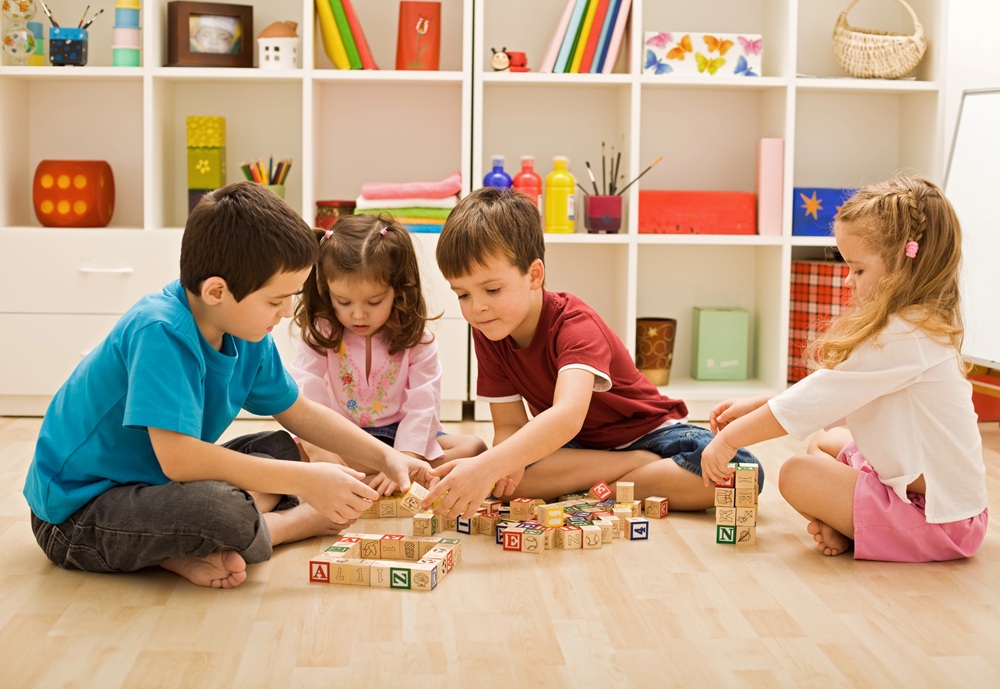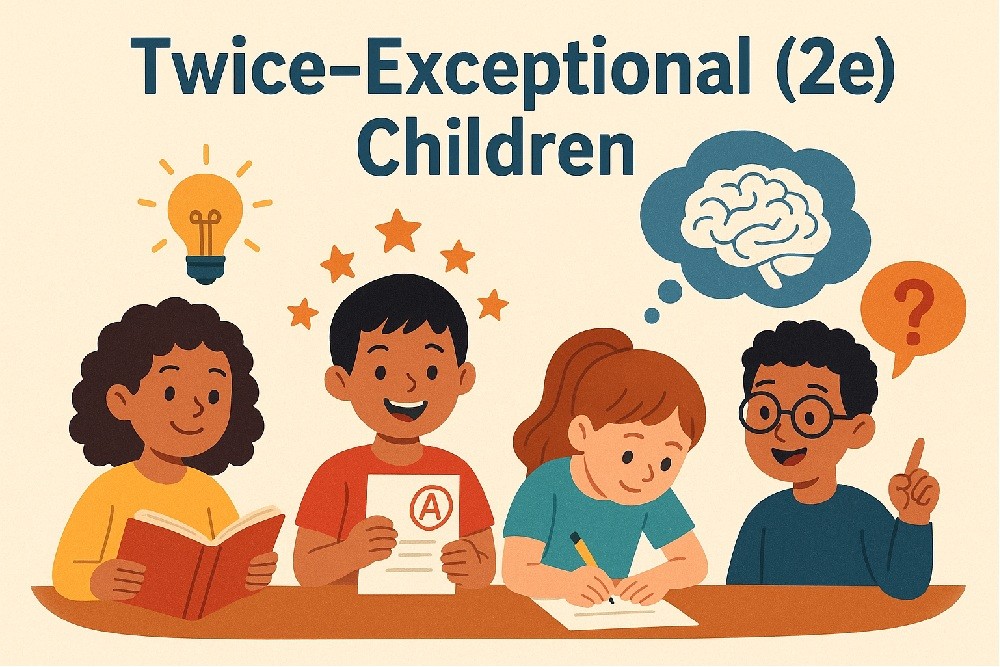When a person struggles in school or experiences behavioral challenges, parents and educators often seek answers.
Resources For Families and Educators

The way we parent plays an important role in our children's emotional development, decision-making abilities, and capacity for healthy relationships.

Children progress through distinct stages of play from infancy through childhood, each building upon the last. Play is a fundamentally voluntary, spontaneous, and enjoyable process through which children learn to interact with objects, materials, peers, parents, and caregivers in both entertaining and social ways.
Children with "twice exceptionality," or 2e, are a commonly overlooked and educationally underserved group.
Introduction: The Power of Proactive Parenting and Early Detection
The ability to communicate effectively serves as a cornerstone for a child's future success, shaping not only academic outcomes but also influencing social interactions, emotional development, and confidence.
Psychological disorders, ranging from anxiety and depression to neurodevelopmental conditions such as autism and attention-deficit/hyperactivity disorder (ADHD), affect individuals at all ages.
Developing empathy is a crucial part of child (and adult!) development. Empathy is the ability to put oneself in the shoes of others, and be able to share those feelings, and is thought to be both a moral virtue, but also an important social skill.
Positive psychology is a field of psychology founded by Dr. Martin Seligman and was developed as a counter to more ‘traditional’ psychological approaches that studied human personality and behavior.
Growth mindset is a term developed by psychologist Carole Dweck that describes the belief that one’s abilities, skills, and intelligence can be developed with effort.
In Cognitive Behavioral Therapy (CBT), negative self-talk is often explained as a result of distorted thinking patterns and underlying core beliefs about ourselves (“I am a bad person”), others (“Others will eventually leave me”), or the world around us (“The world is unsafe or scary”).
Even before the internet clued them in to events happening around the world, teens and young adults have had a proud history of engaging passionately with social and political issues.
By: Craig Selinger, M.S. CCC-SLP, owner of Brooklyn Letters
As a parent, it's natural to be concerned when your child doesn’t meet developmental milestones as quickly as their peers, particularly in language development. Language is foundational to all learning, and a language delay in this area can sometimes be connected to deeper challenges, such as learning disabilities. Understanding this relationship can help you advocate for your child and ensure they receive the support they need.
Emotional intelligence (EI) is a form of intelligence that describes the ability to understand and manage our emotions, as well as recognize and influence the emotions of others. It is a complex skillset and is composed of multiple factors, including:
The stress response in children represents an opportunity to teach healthy, adaptive coping strategies. Responding to stress is different than reacting to it. A stress reaction is when a child encounters a combination of internal and external stressors that trigger stressful reactions. The latter is usually automatic and based on habits of the past. A response, such as a mindful one, is a healthy proactive positive approach and alternative to reacting.
In young children this stress reaction can be a "melt down," a tantrum, or emotional dysregulation. In middle school aged or teenage children, it presents as sadness, anger, depression, and certainly anxiety. The automatic habit-based stress reactions are less healthy and we know this from a physiological perspective as studies have proved the effect stress reactions have on the heart, the brain, the circulatory system, pain management, etc.
As individuals and families seek mental and behavioral health services, they might run into a broad range of providers, all with different degrees, titles, and specialties. Unless you come from this field, these different titles may be confusing, particularly as these providers may all provide similar services.
Neuropsychological testing is a critical tool that can aid in assessing cognitive functions and understanding the impact of neurological, medical, psychological, and social conditions on the brain. Through administering various tests and procedures, these reports provide a detailed profile of an individual’s cognitive abilities. Interpreting a neuropsychological report requires a nuanced understanding of both the data presented and the broader clinical context in which the assessment was conducted. Unless one is experienced in this field, the report can often seem confusing or overwhelming for parents, caregivers, educators, and other professionals. This article is a brief guide for family and non-psychological professionals on understanding the testing process.
How can students with ADHD improve Organization? Understanding the importance of organizational skills and how to apply them is critical. Organizational skills refer to a set of cognitive abilities that facilitate goal-oriented behavior.
Depression, prior suicide attempts, psychiatric disorders, intense anxiety, and addiction are common risk factors for suicide.
While our last post discussed developmental factors that play a role in healthy personality development, this article discusses the disorders of personality, which are personalities that due to how they are formed, may lead to various interpersonal and emotional difficulties. Afterward is a brief overview of risk factors for personality disorders in childhood and adolescence. At the end of the article, a brief discussion of various treatments will be discussed.
As parents of children who are undergoing neuropsychological evaluations or as test takers ourselves, we often wonder what our intellectual capacity says about us or our child. Intellectual capacity, our very ability to think, learn, plan, and understand ideas, can bring up all sorts of emotions and questions. Moreover, questions arise when trying to make meaning from a 2-3 digit number like an IQ that often holds an over-ascribed meaning. Scores could feel daunting, like an assigned grade. For example, if a child receives an IQ of 90 a parent might think that could explain why their child is struggling in school, but that is not necessarily the case. Performance on a single assessment or measure of intellectual ability is only part of the picture and means very little without other sources of information.





















